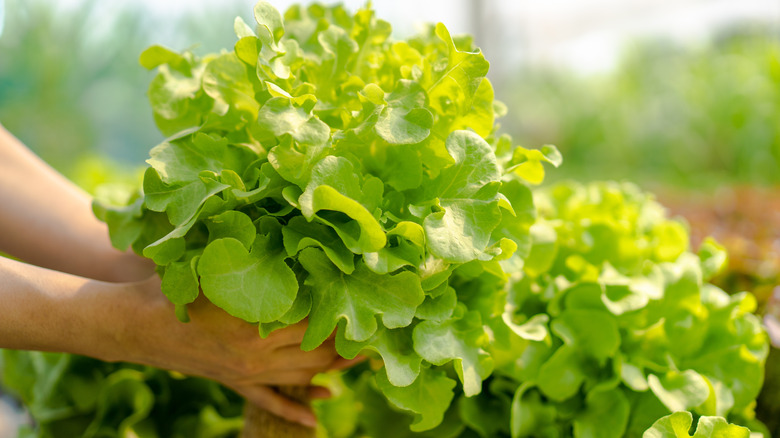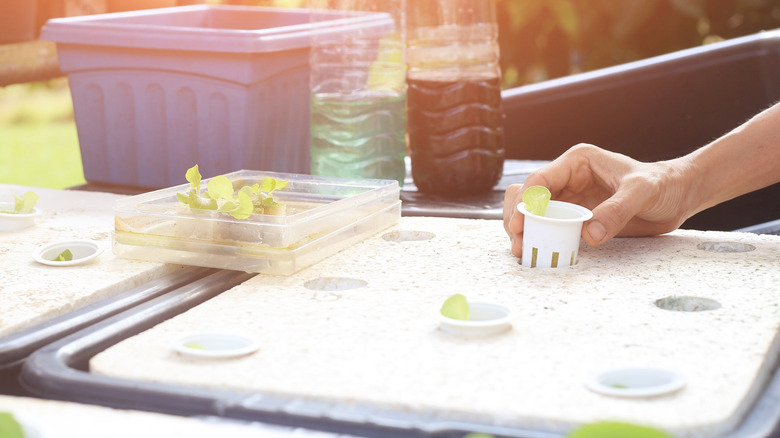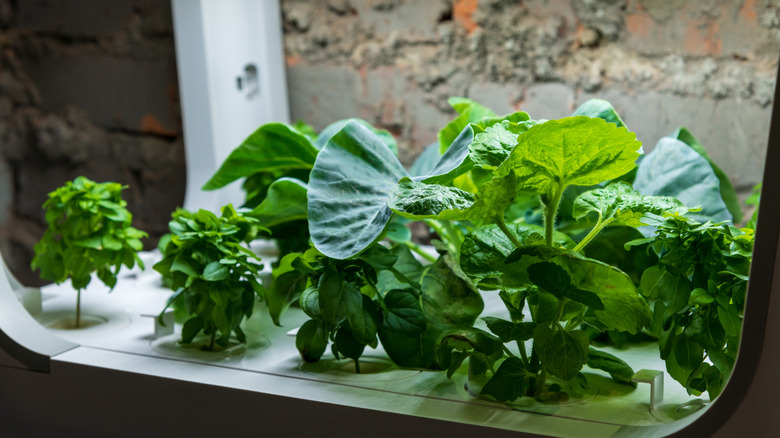Is Hydroponic Gardening Still Worth The Effort Despite Its Disadvantages?
Have you ever wanted to try hydroponic gardening to grow some fresh leafy greens and nutritious herbs right at home? This method of soilless culture has become quite popular over recent years, especially with people who don't have an outdoor space to grow edible plants. Plus, with the right setup, there's no reason why you can't grow your own produce even in the depths of winter when it's cold, bleak, and dreary outside. But before you jump in, there are a few disadvantages of this type of gardening system that might not make it worth your effort unless you're prepared to invest some time in understanding how to maintain your hydroponic garden to get the results you're looking for.
The most notable disadvantages of hydroponic gardening are the initial setup costs and learning curve. There are a few limitations on which plants you can grow successfully using this method, and it's a little more labor intensive than growing in soil because you need to monitor your system regularly. You'll also want to consider the increased cost of the electricity needed to keep everything running. Finally, if disease does get into your plants, it will spread rapidly and could decimate an entire crop almost overnight. At the end of the day, hydroponics is not for everyone, but if you can put in the time and effort required, it can definitely reward you with harvestable produce for your family to enjoy.
Hydroponics requires an investment of funds and time
One of the main disadvantages of hydroponic gardening is the initial cost of setting up your own system. While you can fashion a simple one yourself by following some helpful videos, you'll still have to purchase a few supplies such as net pots, Rockwool, a pump, an aerator, grow lights, and nutrient solution. This nutrient mixture will be an ongoing cost, but it's really no different than buying fertilizer for a soil garden. Plus, you may need a separate solution to grow each type of crop. As a beginner, it might be easier to just buy a small kit to start with.
While there are many plants you can grow in an indoor hydroponic garden, and a variety of edible plants you can grow in an outdoor one, there are limitations. For example, you can't grow root crops this way and many summer edibles like tomatoes, cucumbers, strawberries, and peppers will require careful control of both heat and light if you want them to produce well. As this will have an impact on your electricity expenses, you'll want to weigh up if the extra costs will be worth it. Ultimately, hydroponic growing needs a little more intensive care than gardening in soil. Unless you invest in a fairly high-tech setup, you'll want to monitor everything on a daily basis to ensure your plants are getting everything they need. However, once you've moved past the initial learning curve, you'll probably be able to see at a glance if your plants are healthy.
Giving your plants the right nutrients could take some practice
If you know anything about plant growth, you would be aware that they need a balanced supply of nutrients, both macro and minor. In most hydroponic systems, these are supplied in liquid form via the water the plants are growing in. But this is where it can become a bit complicated because different species require various combinations for optimum growth. Unless you have in-depth knowledge of each plant's specific needs, it may take a little trial and error to get it right. On the plus side, you can find carefully formulated solutions already available on the market that you can use, but these may come at a premium price.
The other thing you need to consider is the pH requirements of the crops you've planted and make sure you're regularly testing the water and making amendments when necessary. As a final note, keeping your plants disease-free is of major importance because once a pathogen takes hold, it could spread through your entire crop fairly quickly. Although this shouldn't be too much of a problem if you're only growing plants indoors in a healthy environment, you might want to explore the essential role of hydrogen peroxide in hydroponic gardening to ensure your edibles remain pathogen-free.


